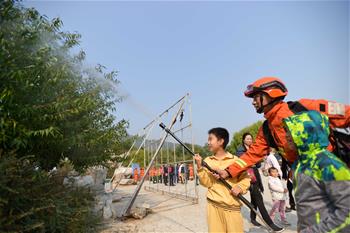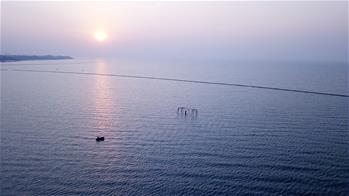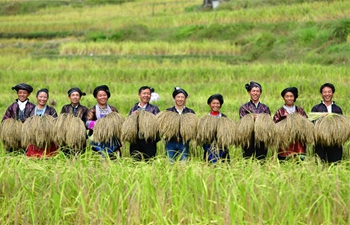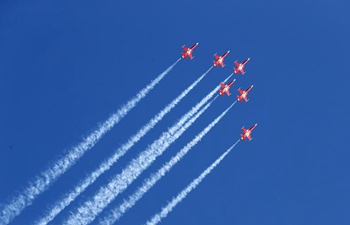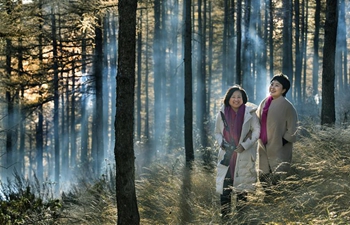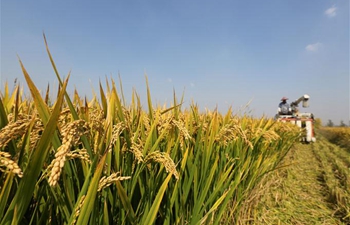SARAJEVO, Oct. 13 (Xinhua) -- Bosnia and Herzegovina's (BiH's) Central Election Commission (CIK) announced the preliminary results of the general elections for members of the Presidency on Saturday.
Results presented at CIK official website after counting the ballots showed that the Bosniak candidate Sefik Dzaferovic from the Party of Democratic Action (SDA) won 36.48 percent of the votes, while the Croatian candidate Zeljko Komsic, a member of the Democratic Front (DF), won 54.16 percent of the votes.
Milorad Dodik from the Alliance of Independent Social Democrats (SNSD), with 53.86 percent of the votes, is a Serb candidate of the BiH Presidency, official information showed.
Till 7 p.m. local time (1700 GMT) on election day on Oct. 7, 2018, 53.26 percent of BiH citizens had voted, slightly less than the previous general elections when the turnout rate was 54.47 percent.
At a press conference held on Thursday, CIK president Branko Petric said that there were 102,000 void ballots for the presidency members, out of which, half was empty and half was incorrectly filled. He added that the number of invalid ballots is similar to the one in the 2014 general elections.
Petric also clarified the delay in the ballots counting, saying that 450 persons are counting the ballots that arrived via the post office from several embassies and consulates where BiH diaspora lives, as well as ballots from the mobile teams who helped persons who cannot vote by their own.
He said that, even though 6 days passed since the general elections took place, there are security checks and repeated counting made in order for the process of counting and results to be correct and transparent, which resulted in delays.
Apart from the tripartite presidency of BiH, voters will choose members of the BiH Parliamentary Assembly, Federation of BiH (FBiH) Parliament, and assemblies of ten cantons in FBiH. Moreover, one president and two vice presidents of Republika Srpska (RS), one of BiH's entities, and its Assembly members will also be elected at the same time.
In one of the most complex electoral systems in the world, every four years, BiH voters elect the three-person presidency which represents the three major ethnic groups of Bosniaks, Serbs and Croats. They will assume the duties as head of the country in a eight-month rotation.
This year's elections are the eighth general elections since November 1990 when the country held its first free, fair and multi-party elections since it became an independent state after the dissolution of former Yugoslavia in which BiH was one of the republics.


